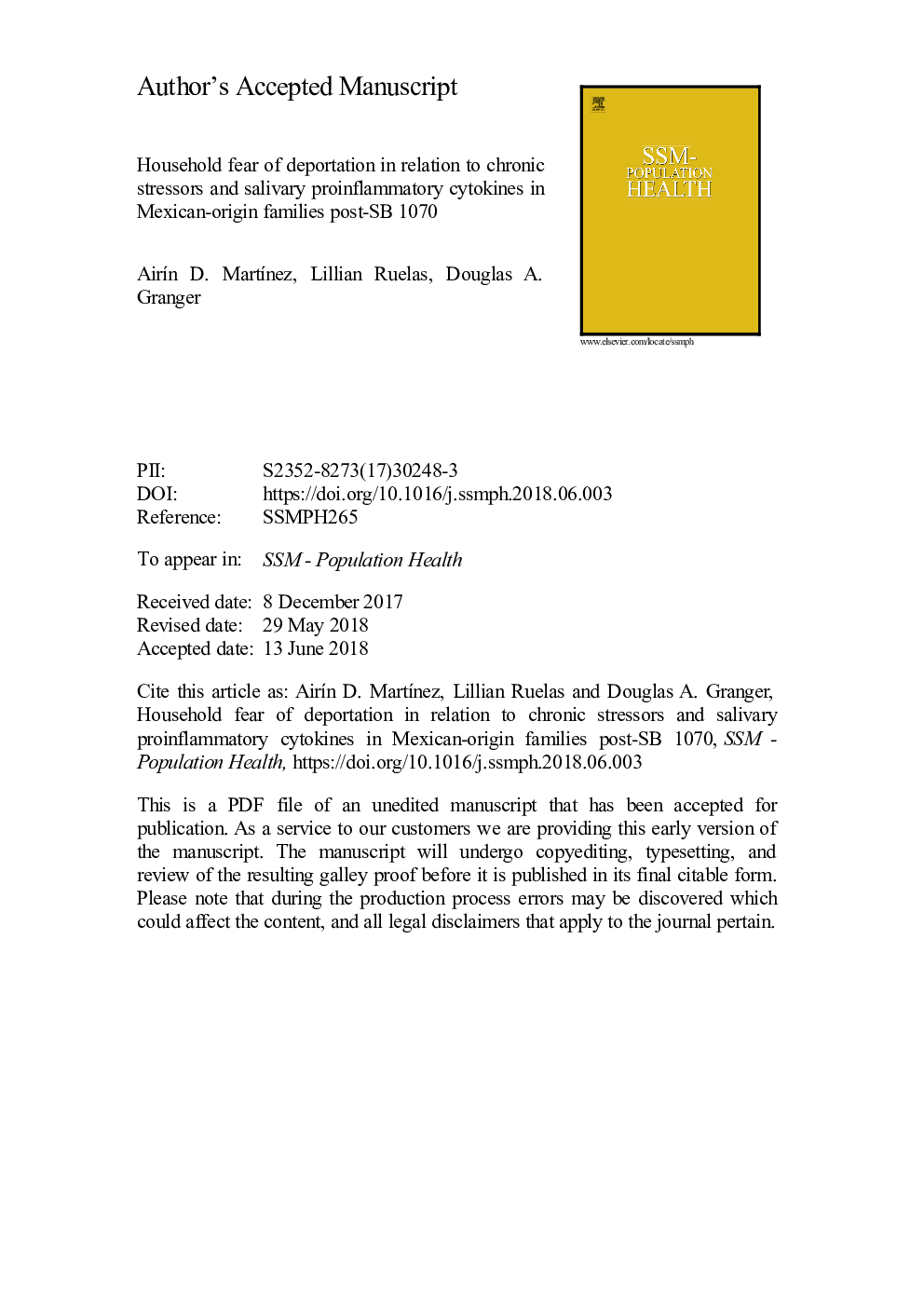| Article ID | Journal | Published Year | Pages | File Type |
|---|---|---|---|---|
| 7528009 | SSM - Population Health | 2018 | 51 Pages |
Abstract
Sociologists recognize that immigration enforcement policies are forms of institutionalized racism that can produce adverse health effects in both undocumented and documented Latinos and Mexican-origin persons in the United States. Despite this important advancement, little research examines the relationship between fear of immigration enforcement and biobehavioral health in mixed-status Mexican-origin families. This study applies an embodiment of racism approach to examine how household fear of deportation (FOD) is related to differences in salivary proinflammatory cytokines (IL-1β, IL-6, IL-8, and TNFα) in healthy Mexican-origin families with at least one immigrant, living in Phoenix, AZ. Participants were 111 individuals (n=46 adults, 72% female; n=65 children, 49% female) from 30 low-income, mixed-status families. During a home visit, anthropometric measures and saliva were collected from each family member and a household survey was administered. Saliva was assayed for salivary IL-1β, IL-6, IL-8, and TNFα. Random effects multilevel structural equation models estimated the relationship between household FOD and a salivary proinflammatory cytokine latent variable between families, while controlling for other chronic stressors (economic/occupational, immigration, parental, and family conflict). Household FOD (β=0.68, p=0.04) and family conflict chronic stress (β=1.96, p=0.03) were strongly related to elevated levels of proinflammatory cytokines between families. These results were consistent in non-mixed and mixed-status families. Future research is needed to characterize what aspects of living with an undocumented family member shape the physical health outcomes of persons with authorized status or US-citizenship.
Related Topics
Social Sciences and Humanities
Social Sciences
Health
Authors
AirÃn D. MartÃnez, Lillian Ruelas, Douglas A. Granger,
